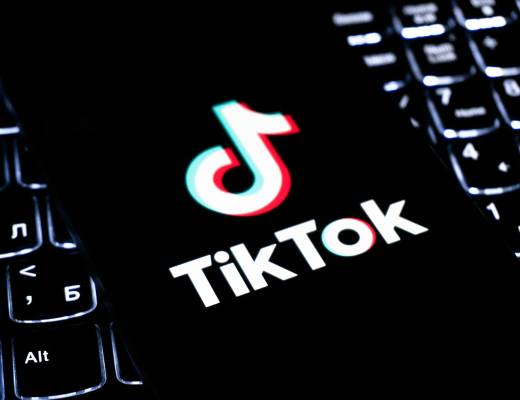How Effective is Your Sales Rewards and Incentives Program? You May be Surprised…
by: Dr. David Brookmire
Today, an unprecedented three generations—with distinct work styles and preferences, values, expectations, needs, behaviors, beliefs, and goals—are in the workplace. Nowhere is this more apparent than in Sales, where the latest generation, Gen Y, will soon become the most prevalent generation.
So how can sales managers in the process of evaluating and establishing their sales rewards systems ensure that they are motivating sales professionals from each generation? What kinds of things should they consider? Are their rewards packages and incentives motivating their sales force to meet or exceed expectations? How do they know?
Here are a few helpful tips that every sales manager should know when it comes to motivating sales professionals:
1. Consider how your rewards structure will appeal to different generations within your sales force:
How many sales rewards and benefits packages are constructed with the preferences of multiple generations in mind? Most rewards incentives packages have a common theme of benefits based on reaching various levels of sales and profit goals, including:
- Cash (e.g., cash bonus, stock grant)
- Time-off (e.g., extra vacation days, sabbaticals)
- Recognition (e.g., peer, company-wide)
- Development (e.g., expanded responsibilities, tuition reimbursement)
- Gifts (e.g., hardware, all expenses paid trips)
- Enhanced retirement benefits and other types or rewards.
On the surface, this seems like a great variety right? But what types of rewards motivate each generation? Asking the Boomers to go to a day at Six Flags Amusement Park or Gen Y’s to spend a weekend day at a company retreat may not actually be seen as a “reward.” Do all the “tried and true” incentives used by most sales organizations have the motivational power to create heightened performance to achieve the goals, or, do these create moderate motivation to meet a goal, or, no motivation at all?
The point is, you need to know what works best for the different generations of sales staff in order to make strategic and tactical decisions about your rewards, incentives and benefits policies. If you get this right, you will strongly enhance your sales productivity, since you will have a core component required to attract, retain, and motivate excellence across generations.
2. On the other hand, don’t get caught up in the hype of generational distinctions:
There is a lot of research floating around out there about what intrinsic motivations cause each generation to perform at peak levels in their professional pursuits. For example, according to Lancaster and Stillman (
When Generations Collide, 2002), Boomers are motivated by money, title, recognition; Gen Xs by having freedom; and Gen Ys by meaningful work. Orrell (
Millennials Incorporated, 2008) recommended that Gen Ys should be motivated by recognition, increased challenges and constant stimulation.
However, in our recent research on what motivates sales professionals in each generation, we found that when it comes to incentives for sales professionals, cash is still king for all generations, especially in the current economy.
In tough economic times, it’s tempting to resort to non-cash incentives (e.g., time off, internal training programs, recognition, etc.) to motivate the sales force. With all the hype about how some generations of workers care less about cash, many companies are trying to tighten their belts by finding alternative rewards. However, at the end of the day, despite generational distinctions in motivation and job satisfaction, tough economic times are affecting your employees too, and concern about money will quickly outweigh any other interest in professional development or recognition opportunities.
Gen Y Examples:
The Gen Ys we surveyed overwhelmingly chose the cash based incentives over other types of sales benefits as the top rewards that motivate them to meet and exceed performance goals:
- Cash Bonus (89%)
- Base Pay Increase (86%)
- All Expenses Paid Trip (64%)
- Job Promotion (61%)
- Additional Vacation Days (55%)
- Flexible Work Schedule (53%)
Furthermore, although a lot has been written about how Gen Y’s need to feel recognized, challenged and stimulated in the workplace, rewards and incentives such as receiving a recognition note from a supervisor or meeting with company leaders placed at the bottom of our results, posting abysmal numbers of less than 15%.
3. Reassess your program regularly:
If you are truly concerned about attracting, hiring and retaining top sales talent, you need to be consistently reviewing how effectively your rewards programs are meeting the needs of your sales force. Don’t just trust the way it has always been done or what you read in the news about what truly matters. Ask your employees. Get their feedback about what motivates them and their level of job satisfaction.
Consider that the same economic pressures that your company is feeling affect your sales force just as strongly. In fact, challenging economic conditions make their job harder, so you should reassess your sales goals benchmarks as well to ensure that your sales force sees their performance goals as realistic and attainable.
Finally, make your incentive programs flexible and review their effectiveness often. If you aren’t reassessing your sales compensation structure at least twice a year, you may be surprised to find that you are offering sand to someone in the desert, when what they really want is water. Keep that up and they apt to look for what they need elsewhere.






